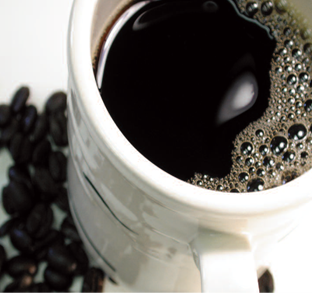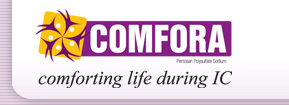Five Ways to Calm Vaginal Burning at Home

1 - Foods
Which foods should I avoid?
As a general rule, foods high in acid (i.e. orange juice, coffee, tea) create irritation in much the same way that lemon juice poured on a wound on your hand would feel. It hurts! Foods that stimulate nerves (i.e. caffeinated drinks) are notorious for triggering the already sensitized nerves in the bladder. Foods high in histamines (i.e. chocolate) can trigger an allergy like reaction. Some, but not all, patients may struggle with foods high in sodium or potassium.
My doctor says that there’s no proof that some foods can irritate the bladder? While IC patients have long known through personal experience that many foods can irritate the bladder, it wasn't until the Summer of 2007 that researchers at Long Island University published the first formal validated research study which proved that certain foods badly irritate the bladders of the vast majority of patients. The release of this study in the peer reviewed Journal of Urology should finally provide evidence needed for those medical care providers and family members who do not believe that diet makes a difference.
Is the diet appropriate for every patient? If you are having any bladder symptoms that worsen as your bladder fills with urine, this suggests that your bladder wall is showing signs of irritation or inflammation. It makes sense to protect your bladder by avoiding irritating foods.
Even one small serving a day can cause IC flares in patients with a tender, inflamed or wounded bladder wall. But, even more so, some of these foods create such profound irritation, particularly when consumed daily, that they could reduce the potential effectiveness of the many IC treatments available. Most patients report that diet modification is an essential part of their flare management plan.
• COFFEE - Coffees (regular & decaf) are, by far, the most irritating to an IC bladder, not just for the caffeine but also for the very high acid level. We strongly suggest that you avoid all coffees if you are currently symptomatic. When your bladder has calmed down and your symptoms have improved, you can try one cup of herbal or low acid decaf coffee to see if your bladder tolerates it. Fair warning, most patients cannot tolerate coffee on a daily basis.
• REGULAR & GREEN TEAS - Regular and green teas (hot and iced) get their flavours from tannic acid and, thus, easily irritate the bladder.The worst tea of all? Powdered, sugar-free instant iced teas. If you’re desperate for tea, try plain herbal chamomile or peppermint teas which can be calming and soothing to smooth muscle of the bowel.
• SODA & DIET SODA - If a soda can remove rust from a penny, just imagine what it would do to a wound in your bladder. Sodas are highly irritating not only for the citric acid used for flavouring, but also for the preservatives, flavourings and artificial sugars. If you’re desperate for a soda, try an organic regular root beer but, please, only once a month.
• FRUIT JUICES - Fruit juices, particularly cranberry, orange, lemon and tomato juices, are very acidic because each glass carries the acid of not just one piece of fruit but many that have been processed to make that juice. Juices are notorious for triggering bladder wall irritation in IC patients. We suggest that you try pear, blueberry, or apple juice, preferably.
• MULTIVITAMINS - Do you think that you must take a vitamin to be healthy? If so, the vitamin companies love your business but some research studies now suggest that consuming high levels of vitamins may feed some cancers. For the IC patient, multivitamins are quickly broken down and excreted through urine where they may irritate our bladder walls. Vitamin C and Vitamin B6 seem to be the culprits though this has not been proven, as yet, in a research study. Unless you have a medical condition which requires using specific vitamins, we suggest that you stop Vitamin C, B6 and/or multivitamins to see if they are irritating your bladder. Some patients seem to tolerate the low acid Ester C better.
• ARTIFICIAL SUGARS - Artificial sugars continue to generate a lot of negative feedback from IC patients who report flares after eating them. Artificial sugar may not be as beneficial as we originally thought and there is substantial evidence that it can lead to excess weight gain. In 2005, a study was released that found that patients who drank diet sodas, as opposed to regular soda, had a much higher likelihood of obesity. In the IC bladder, artificial sugars appear to create profound irritation. We suggest that you remove artificial sugars from your diet to determine if they are contributing to your pain.
• CHOCOLATE - Due to its histamine content, chocolate is notorious for triggering irritable bowel syndrome symptoms, allergies and, in an IC bladder, irritation and pain. If you’re desperate for chocolate, try carob, a white chocolate or a very dark, semisweet chocolate. The cheaper milk chocolates seem to be the most irritating.
2 – Hormones
The bladder lining can be sensitive to the hormone changes that occur each month during the menstrual cycle. Some patients flare when their progesterone levels are higher, while others flare when their estrogen levels are higher. While some doctors may disagree as to why this occurs, many women struggle with an IC flare on the day that they ovulate and a few days before their period. The good news is that these flares are often predictable and short term. The bladder wall flare strategies can be used.
In an article on IC and menopause Gaye Sandler explains why hormones can contribute to bladder symptoms. She said “The smooth muscle in the bladder, urethra and vagina lose tone and strength as estrogen levels decline. Because the bladder lining, the nerves, blood vessels, and muscles that govern urinary function are all affected by estrogen, the decline of estrogen during perimenopause and menopause increases sensitivity to pain and susceptibility to bladder problems. When there is a decrease in blood flow and lubrication, the urethral, bladder and vaginal tissue become thinner, drier, less resilient, and more susceptible to inflammation. These various changes also leave the bladder vulnerable to infection and can cause symptoms such as urgency, frequency, burning, and sometimes, mild incontinence.”
An OB/GYN should be able to spot signs of estrogen depletion during a simple pelvic examination and you, of course, may notice drier skin.
3 - Travelling/ Driving
One of the earliest IC research studies found that 50% of all IC patients had pain while driving or riding in a car. Because the bladder and surrounding muscles are already sensitive, driving over bumpy roads and jarring the pelvis and bladder can trigger painful muscle spasms and irritation. IC patients frequently report that they cannot travel long distances without experiencing great discomfort.
If you’re already in an IC flare, limit car travel to short distances. This is not the time to drive across the country. If you must travel, the car should have a smooth suspension and comfortable seats. Because leather car seats are often hard, patients usually prefer softer fabric seats.
You may find that using a muscle relaxant and/or heat can help make car rides tolerable. Above all, don’t force yourself to hold your urine throughout a long car ride. Stop and use the restroom as frequently as you need to. Travel by train or plane can be equally challenging. When making your reservations, please let airline or rail staff knows that you have disability and must be seated near a restroom or in an aisle seat so that you can get to the restroom easily. When you arrive at the plane or train, make sure that you inform the attendant of your needs. Use medication as suggested by your physician.
4 – Stress
IC patients frequently report that their symptoms worsen during periods of high physical or emotional stress. Consider the fact that when patients get very cold, they often have more bladder symptoms. Emotional stress creates similar reactions in the bladder through no fault of the patient. The human body has complicated neurological functions that we are still trying to understand. In the past few years, several IC researchers have focused on how nerves in the spinal cord and bladder react in highly stressful situations. They have found that intense stress causes a neuroendocrine response throughout the body, brain, spinal cord and that appears to be contributing to our pain levels.
While this research continues, it’s important for IC patients to remember that there is no shame in having an IC flare as a result of stress. But, if it happens frequently, try to reduce your stress load and/or consider learning some new stress management skills by taking any one of the many stress management classes available at colleges and health centres around the country. As you get better at handling stress, the likelihood that it can trigger a flare should reduce.
